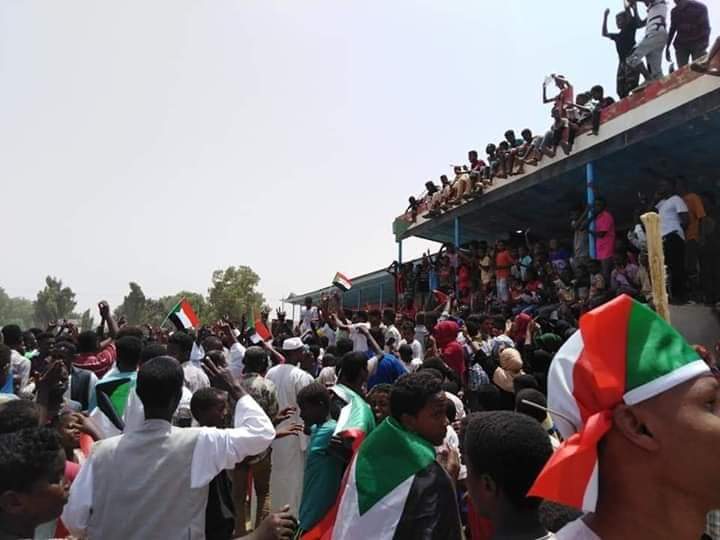This article appeared first on our Italian website, as it was written by our Italian editorial director Raffaele Crocco on November 18, 2021.
Confusion: this would the correct description, if it were not too bland to describe a tragedy involving millions of people. The military coup in Sudan of October 25, 2021 is destabilizing a large part of Africa, causing a domino effect that pushes the consequences of the violence to plummet southwards, towards South Sudan and Uganda.
Obviously: the first and main victims are the Sudanese, already worn out by years of uncertainty and economic crisis. The country has been on its knees since well before the fall of former dictator Omar al Bashir, ousted in April 2019. The October coup put an end to every attempt – however unsuccessful – to set up some form of democracy and to revive an economy suffocated by corruption and the lack of businesses.
In recent weeks, after the coup d’etat of 25 October, protests throughout the country have been mobilized by those calling for a return to a government led by civilians. Tens of thousands of people took part in the October 30 mobilization in Khartoum, the capital. The protest raged, at the same time, in other cities. The reaction of the police was, as could be expected, extremely violent. At least three people have died, bringing the total – since October 25 – to thirteen dead and 165 injured. Observers write that “the measures taken by the military junta show the confusion within it with respect to the protest movement.” This is the opinion of the pan-Arab daily Al Quds al Arabi. The coup leaders are allegedly trying to appease the protesters by making some concessions. For example, they released Prime Minister Abdallah Hamdok, who had been arrested when the military took over. Immediately after he was released, however, he was placed under house arrest.
In fact, General Abdel Fattah al Burhan, the new leader of the Transitional Sovereign Council, has already replaced most of his ministers. In addition, he got his hands on the Sudanese economy, appointing close collaborators to the head of the main five banks.
Meanwhile, on November 7, at least 87 teachers were arrested after participating in a sit-in protest over the new appointments at the top of the education ministry and on November 9, a court ordered telecommunications companies Zain, Sudani and Mtn to unblock internet access, because everything has been silent since the coup. A request that fell on deaf ears.
In short, the Transitional Sovereign Council, born after the fall of the former dictator al Bashir, is now in the hands of the military. He should have sought legitimacy in the elections scheduled for 2023. In recent years, however, the generals have never given the idea of really wanting to hand over power to civilians and tensions have grown, month after month, until the coup.
Experts announce that the consequences in that part of Africa could be severe. Sudan’s relations with neighbors are complex. With Ethiopia, in recent weeks busy grappling with the Tigray war, the dispute is open for the use of the Nile waters, a controversy linked to the Great Renaissance Dam built by Addis Ababa. Khartoum has always been against the dam, for fear of running out of water. The military in power could take advantage of the current Ethiopian weakness for a coup.
Relations with Egypt also remain complex; meanwhile, there is great rivalry with South Sudan: the state (now devastated by its own internal crisis) that has become independent by breaking away from Khartoum in 2015, taking away all the oil wells. The oil wells: a wealth that would now suit the empty Sudanese State treasury.
In short, the risk of a chain crisis is real, observers say. And the crisis would inevitably involve Uganda, already a “country of refuge” for millions of South Sudanese on the run. Military pressure, from the north, could push new refugees to the West Nile area. In recent weeks, the resumption of fighting in the Democratic Republic of Congo has already brought thousands of people fleeing into the Kisoro district in the southwest. This was reported by UNHCR, the United Nations Agency for Refugees and Refugees, explaining that, as always, Uganda did everything it could and should to welcome them. The risk, however, is that Kampala, left alone, might not have sufficient resources to cope with new, future arrivals. The ghost of the Sudanese crisis scares many in Africa.
























